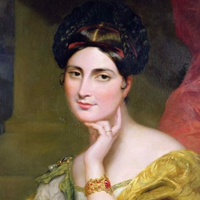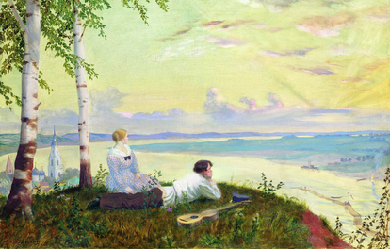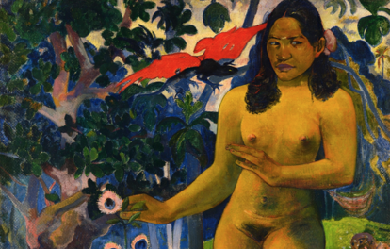The Widow to Her Son’s Betrothed
By the Hon. Mrs. Norton
I.
AH, cease to plead with that sweet cheerful voice,
Nor bid me struggle with a weight of woe,
Lest from the very tone that says “ rejoice ”
A double bitterness of grief should grow;
Those words from THEE convey no gladdening thought,
No sound of comfort lingers in their tone,
But by their means a haunting shade is brought
Of love and happiness for ever gone!
II.
My son!—alas, hast thou forgotten him,
That thou art full of hopeful plans again?
His heart is cold—his joyous eyes are dim,—
For him THE FUTURE is a word in vain!
He never more the welcome hours may share,
Nor bid Love’s sunshine cheer our lonely home,—
How hast thou conquer’d all the long despair
Born of that sentence—He is in the tomb?
III.
How can thy hand with cheerful fondness press
The hands of friends who still on earth may stay—
Remembering his most passionate caress
When the LONG PARTING summon’d him away?
How can’st thou keep from bitter weeping, while
Strange voices tell thee thou art brightly fair—
Remembering how he loved thy playful smile,
Kiss’d thy smooth cheek, and praised thy burnish’d hair?
IV.
How can’st thou laugh? How can’st thou warble songs?
How can’st thou lightly tread the meadow-fields,
Praising the freshness which to spring belongs,
And the sweet incense which the hedge-flower yields?
Does not the many-blossom’d spring recal
Our pleasant walks through cowslip-spangled meads,—
The violet-scented lanes—the warm south-wall,
Where early flow’rets rear’d their welcome heads?
V.
Does not remembrance darken on thy brow
When the wild rose a richer fragrance flings—
When the caressing breezes lift the bough,
And the sweet thrush more passionately sings;—
Dost thou not, then, lament for him whose form
Was ever near thee, full of earnest grace?
Does not the sudden darkness of the storm
Seem luridly to fall on Nature’s face?
VI.
It does to ME! The murmuring summer breeze,
Which thou dost turn thy glowing cheek to meet,
For me sweeps desolately through the trees,
And moans a dying requiem at my feet!
The glistening river which in beauty glides,
Sparkling and blue with morn’s triumphant light,
All lonely flows, or in its bosom hides
A broken image lost to human sight!
VII.
But THOU!—Ah! turn thee not in grief away;
I do not wish thy soul as sadly wrung—
I know the freedom of thy spirit’s play,
I know thy bounding heart is fresh and young:
I know corroding Time will slowly break
The links which bound most fondly and most fast,
And Hope will be Youth’s comforter, and make
The long bright Future overweigh the Past.
VIII.
Only, when full of tears I raise mine eyes
And meet thine ever full of smiling light,
I feel as though thy vanish’d sympathies
Were buried in HIS grave, where all is night;
And when beside our lonely hearth I sit,
And thy light laugh comes echoing to my ear,
I wonder how the waste of mirth and wit
Hath still the power thy widow’d heart to cheer!
IX.
Bear with me yet! Mine is a harsh complaint!
And thy youth’s innocent lightheartedness
Should rather soothe me when my spirits faint
Than seem to mock my age’s lone distress.
But oh! the tide of grief is swelling high,
And if so soon forgetfulness must be—
If, for the DEAD, thou hast no further sigh,
Weep for his Mother!—Weep, young Bride, for ME!




